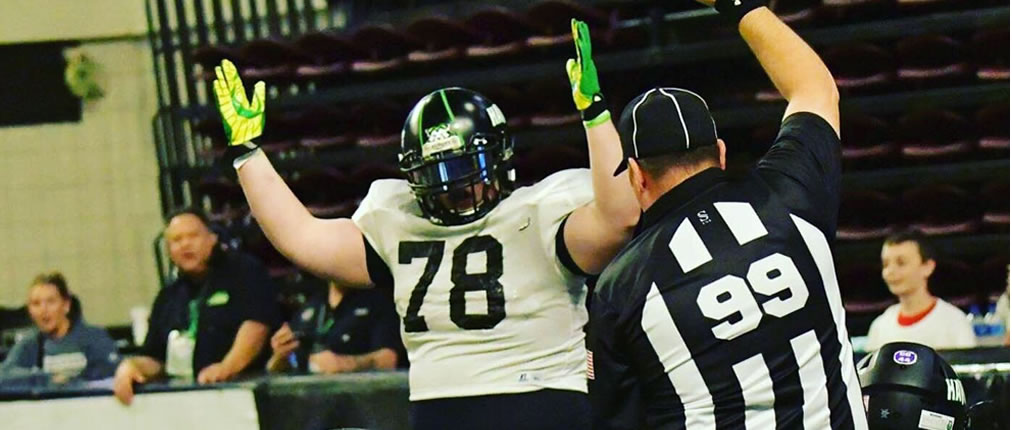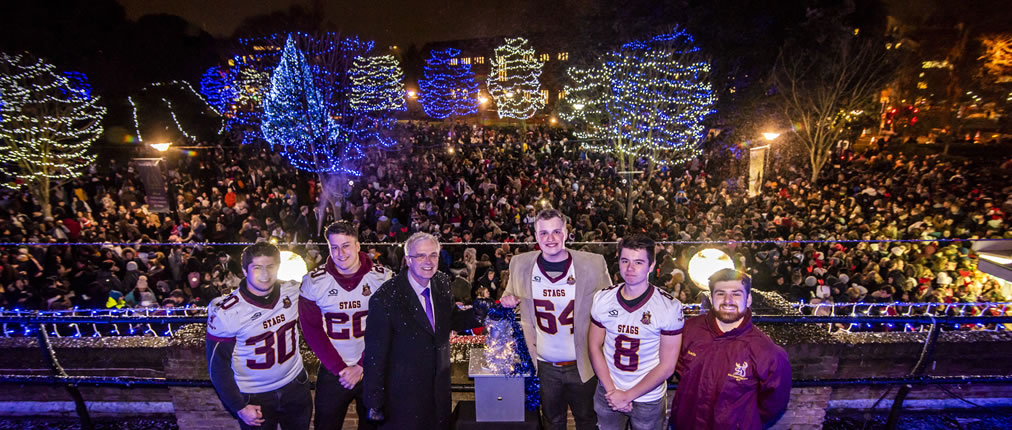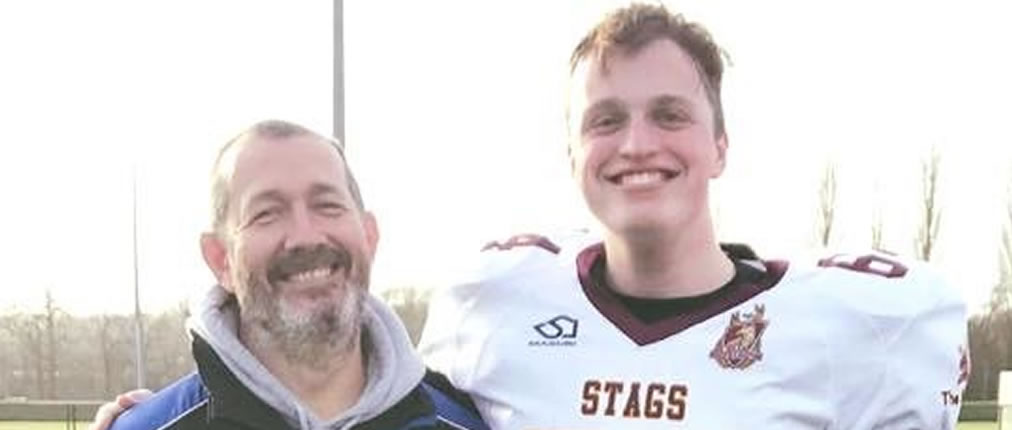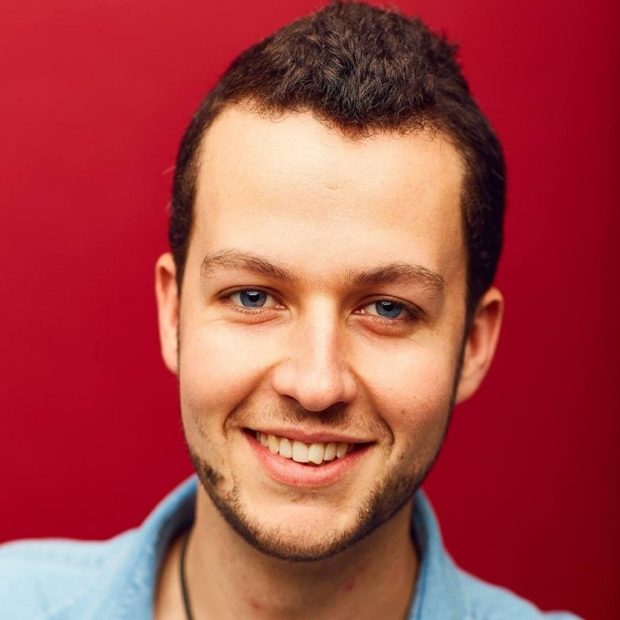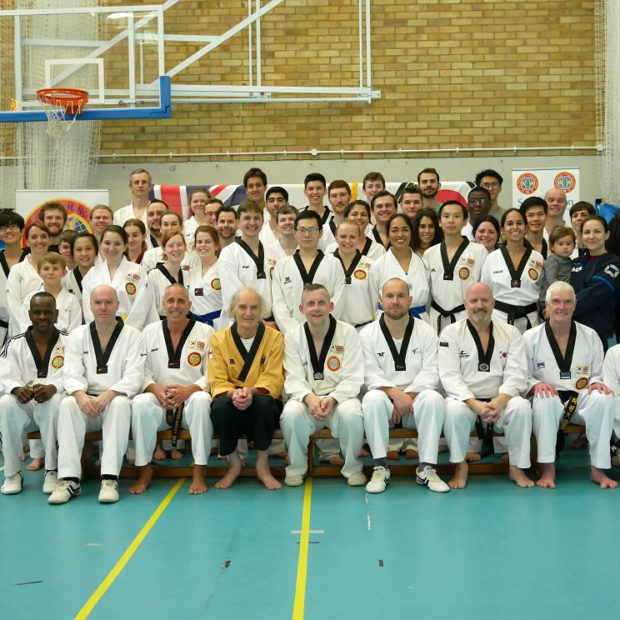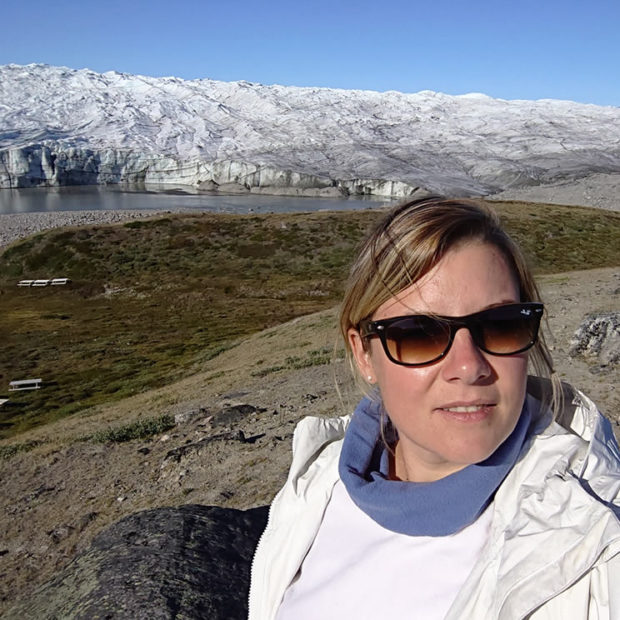Hartley News Online Your alumni and supporter magazine
Since graduating from Southampton last year, Cameron Craig (BSc Business Innovation, 2018) has moved to the USA to embark on his career as a professional American football player for the US team Carolina Havoc.
That’s quite an achievement for someone who was born six weeks prematurely and struggled with coordination as a child with dyspraxia. And it’s even more impressive considering he hadn’t watched a game of American football before his arrival in Southampton five years ago.
Cameron talks to Southampton Connects about his extraordinary journey.
What inspired you to study business innovation at Southampton?
Southampton was my first choice because it’s near the sea, has a great business school and excellent sports facilities, and I had my eye on joining the rugby team. Business innovation appealed to me because I liked the idea of creating new products and services for an ever-changing marketplace. Southampton was also my sister Hannah’s first choice, so we have a bit of a family history at the University.
What sparked your interest in American football?
All through school I’d played rugby so I was fully intending to continue playing at Southampton. I was in the queue to sign up at the Freshers’ Fair when I got talking to a guy dressed in the full American football gear, recruiting new players.
I went along to a taster session at the Southampton Stags American football team, tried on the helmet and shoulder pads, learned the basics of the game – and I fell in love with it. American football is just as physical as rugby, which is right up my street. I also like the way the game is configured: it’s very strategic, a bit like playing chess on a field.
What did you enjoy most about playing for the Southampton Stags?
Joining the Southampton Stags was one of the biggest highlights of my life. Just walking onto that field the first time for the Stags and not really having a clue, then slowly learning more and more about the game has been amazing.
The Stags is a great programme and without their support I wouldn’t be where I am today. I’ve made a lot of lifelong friends among the players and coaches.
You went from a complete beginner to a professional player in just four years – what is the secret of your success?
I think what’s most important is being able to learn from your mistakes and to take criticism without getting too downhearted. I grew up with that type of mentality. I felt I was always trying to catch up with the other kids, whether physically or in the classroom, so I have always been quite a determined guy. I found American football a great new challenge.
What challenges did dyspraxia pose – and how did you overcome them?
I was diagnosed with dyspraxia at around the age of seven. My hearing was at about 80 per cent and I found basic fundamentals, like trying to catch a ball, quite difficult. I also didn’t have a dominant hand, so I had to figure that out. I actually write right-handed, but play football with my left foot, so it’s a bit of a mix-and-match situation!
How I overcame it was really down to my parents; through their help I did a lot of physiotherapy and listened to classical music to retrain my hearing. The treatment took about four or five years. It was very tedious; I was one of those kids that couldn’t sit still at the best of times! I remember one of the last things the physios said to me was to keep playing sport because it helps with coordination.
What motivates you?
I like being an underdog and the feeling of overcoming obstacles, from not being able to catch a ball, to making the first rugby team at school, to captaining the University American football team, to playing professional football in South Carolina. Every time I reach the next step, that’s what motivates me. It was the same with my education, because the dyspraxia affected that too, and the University was fantastically supportive when I was studying for my degree.
How did you feel when US coaches contacted you about playing professionally?
I was stunned! I’d originally aimed to play American football in Europe; to be approached to play in the USA was absolutely incredible.
How are you finding life in South Carolina?
I’m loving it. The people are fantastic and really welcoming. One of the things I was worried about was feeling different because of where I’ve come from, but actually it’s been the opposite. I feel quite special because everywhere I go people like my accent or story. So although I do stand out, it’s in a good way.
What does an average day look like for you?
We get up quite early in the morning and do a gym session in the team facility. Then there might be a couple of interviews or appearances. One of the things we are doing at the moment is going into local schools to promote the game.
I am passionate about talking about my dyspraxia because, whether they have it or not, there will be kids everywhere who feel they can’t achieve something, and being able to tell them it can be done against the odds is important to me.
What advice would you give to anyone who would like to follow in your footsteps?
I would say if you really want to do it, you have to be fully dedicated. Anything that’s worth having is not easy to get, so you need to work hard, and be willing to take criticism and learn. Also, be confident and have faith in yourself; there will be people at all levels who are doubters, so you need that belief in yourself. And if, like me, you are lucky enough to have a fantastic family and support, don’t forget about them and the part they’ve played.
What are your ambitions for the future?
I’d love to keep progressing in the sport; getting to the top US leagues would be the dream. I’m always keen to learn, so for me it’s about looking at my horizons and seeing what I can do in the future.
Maybe when I’m older and not playing any more, being involved in the game from a business aspect; perhaps helping to grow it in the UK. At the moment though, I’m just starting out and finding my feet. I’d love to get a sun tan in the USA without burning – that would be a great achievement with my Scottish complexion!
